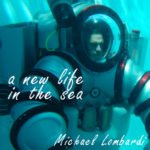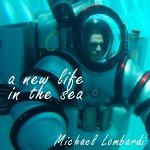 It’s always a matter of perspective. One person’s half full glass is half empty for someone else, and so that is our yin and our yang. This push and pull, good and evil, happiness and sadness, positive and negative is what keeps our wheels turning and humanity evolving. The notion that we might achieve some greater balance amidst the imbalance is always an ideal to strive for, but the reality is that we may never get there.
It’s always a matter of perspective. One person’s half full glass is half empty for someone else, and so that is our yin and our yang. This push and pull, good and evil, happiness and sadness, positive and negative is what keeps our wheels turning and humanity evolving. The notion that we might achieve some greater balance amidst the imbalance is always an ideal to strive for, but the reality is that we may never get there.
On a global scale, this is scary, as our Blue Planet’s life cycles are very, very long – certainly outliving any single one of us, or even generations of us, and yet is is our very decisions and actions that have the ability to steer this cyclical nature over vast expanses of time. Astronaut Mark Kelly’s recent Op-Ed for CNN highlighted this well – noting the vast changes to our planet’s surface in just ten years’ time from space visit to space visit. This awe inspiring view, often called the Overview Effect has had deeply profound impacts on astronauts’ perspectives of our planet and its [and our] role in the universe.
From the astronaut perspective of the outward looking in, as Kelly states, we see a planet that is struggling. From another perspective, being the undersea vantage point looking out, I see a chaotic terrestrial world struggling, and doing a tremendous disservice to the rest of the planet. From both perspectives, it’s obvious that it’s we people being highly irresponsible with our precious resources and we’re charting a course that was never meant to be…there is nothing but imbalance, and it is shifting the ecology of the planet towards an unsustainable future. That means bad news for all of us.
The advantage of the undersea vantage point is that we can see, firsthand, what our Blue Planet has to offer, and quite likely see why we are here to begin with. From outer space looking in, this is a watery world. From within our watery world, there are nothing but boundless frontiers for humanity, and some might argue that our setting foot on terra firma was only a baby step to settlement here on Earth; where only the fittest will survive, and long term sustainability will come with an improved relationship both with, and within the oceans.
Now, how to break the vicious cycle of planetary degradation and begin to take a more responsible approach to managing our humanity’s survival? Well, the only logical thing I see is to chart the new course…leave our shores, and set sights on the frontiers that called us to the Blue Planet to begin with. We can take two philosophical approaches to human destiny, where 1) Earth is a stepping stone a new humanity on another planet, and 2) we learn to adapt to the principle value of a watery planet…water.
To the first point, how can we possibly take this mess and transplant it somewhere else and think that this is the right foot to start new human civilization off with? There are far more lessons to learn about sustainability and self-reliance before we take our open system to another planetary body where we need a constant input of consumptive resources. To the second point, we need water to survive, and this is the only place around that definitely has water, so WTF? If we can’t figure things out here where resources abound, then we’ll never have the capability to mount sustainable extra-planetary voyages.
So, rather than throw in the towel and look to the starts for some false sense of hope, and just run away, let’s divert that ambition inward.
There is no shortage of work to do, there is only a shortage of will. And with that – a will to live, a will to survive, comes with a new life in the sea.
For this new year, take a look through the lens of a dive mask – this vantage point reveals the why we are here, and where we are destined to go.

